Growing up religious can shape you in major ways, many of them positive.

However, if you’re not paying attention, it can also majorly narrow your thinking and make you more judgemental, intolerant, or even unkind towards people who are different from you—or toward yourself. Here are some of the ways that narrow-mindedness might show up without you even realising. It’s important to regularly question your beliefs and whether you’re allowing them to influence you in ways that are unhealthy and totally unnecessary.
1. You might assume questioning is the same as being disrespectful.
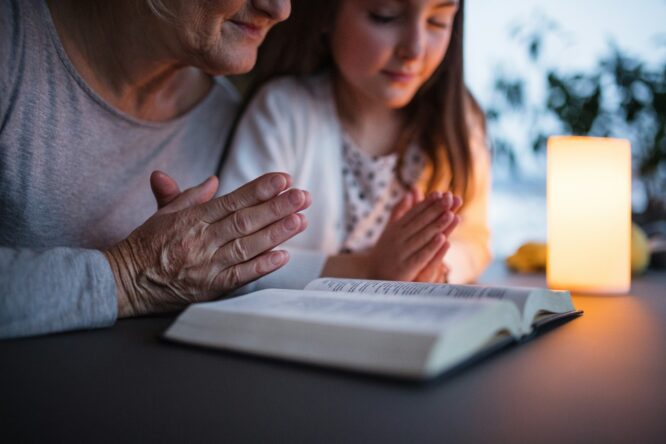
If you grew up being told that doubting or asking questions was a sign of weak faith, it can make you flinch any time someone challenges your beliefs. Even if they’re being respectful, it might still feel like an attack. That mindset can keep you stuck in defence mode, where curiosity feels threatening instead of healthy.
Of course, curiosity doesn’t mean you’re losing your values—it just means you’re opening up to different ways of seeing. If you shut people down for exploring things you were taught not to touch, you might end up missing out on deeper, more honest connections. You don’t have to agree with everyone, but making space for questions could surprise you in the best way.
2. You might default to ‘right or wrong’ when life’s actually more grey.

When everything’s been framed as moral or immoral, it’s easy to start seeing life like a scorecard. Someone’s either good or they’re not. However, real life doesn’t play out in neat little boxes, and that mindset can make it hard to relate to people who live differently from you. Not everything is about being sinful or virtuous—some things are just human.
If you were raised to label things quickly, it can take time to unlearn that reflex. When you start to see that most people are just doing the best they can with what they know, something changes. You don’t lose your sense of right and wrong—you just learn to hold it with a little more compassion.
3. You might struggle to accept people who make different choices.

When you’re taught there’s only one ‘right’ way to live, it can make anything outside of that feel automatically wrong or even dangerous. You might not mean to judge, but that voice in your head has been trained to see certain lifestyles or choices as a threat. That knee-jerk reaction doesn’t come from you—it’s something you learned early on.
And the tough part is, it can block you from truly seeing people for who they are. You might find yourself distancing from friends or family just because they’re living a life you were warned against. However, when you set down the rulebook and meet people where they are, you often realise love doesn’t need all those conditions.
4. You might carry guilt for things that don’t actually hurt anyone.

Some religious upbringings tie your worth to how well you follow the rules, even when those rules have nothing to do with kindness or integrity. You might feel guilty for feeling angry, saying no, or just wanting something different. That quiet, creeping guilt shows up even when you haven’t done anything wrong.
As time goes on, it can become exhausting, like you’re constantly trying to earn the right to feel at peace. Letting go of unnecessary guilt doesn’t mean you’re abandoning your values. It means you’re learning how to trust your own sense of what’s okay, especially when no one’s getting hurt.
5. You might silence your own needs to seem more ‘spiritual.’

If you were praised for being selfless, you might’ve learned to push your own needs way down in the name of being good. Saying you’re fine when you’re not. Letting other people cross your boundaries so you don’t seem selfish. It can feel noble, but it’s often just burnout in disguise.
Being spiritual or kind doesn’t mean disappearing into other people’s expectations. You deserve to take up space and honour your own limits. Being generous doesn’t mean erasing yourself. Sometimes, the most grounded kind of strength is knowing when to say, “This doesn’t feel right for me.”
6. You might have trouble separating fear from faith.

If your faith was built on fear—fear of punishment, fear of getting it wrong—it can follow you long after you stop believing the same things. You might find yourself anxious about every choice, worried something bad will happen if you don’t follow the rules exactly right.
That kind of fear can masquerade as conviction, but it’s not the same thing. Real faith, the kind that grounds you, doesn’t rely on fear to keep you in line. Learning to make choices from a place of love or clarity instead of fear is uncomfortable at first—but it’s also where peace starts to grow.
7. You might believe doubt means you’re doing something wrong.

Plenty of religious messages suggest that doubt is dangerous or shameful, like it’s a slippery slope straight to losing everything. So when you start to question things—your beliefs, your identity, your path—you might panic or feel like you’re betraying something important.
The thing is, doubt doesn’t always mean you’re falling apart. Sometimes it means you’re growing. Questioning isn’t the opposite of belief—it’s often part of it. When you let yourself sit with uncertainty, it opens space for something deeper, something more honest than just repeating what you were taught.
8. You might judge yourself harshly for simply being human.
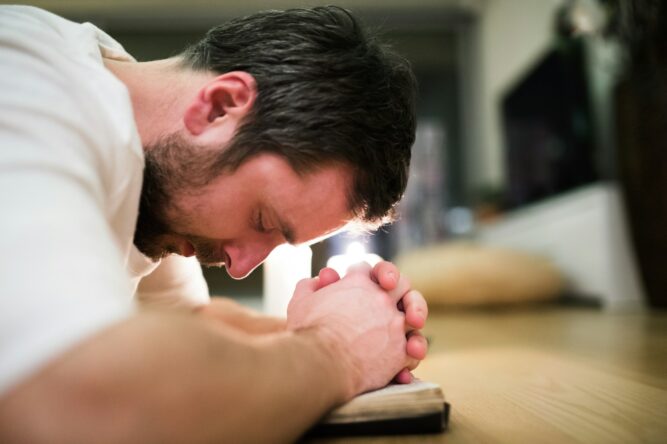
If you were raised with high moral expectations, you might feel like you’re constantly falling short. Every misstep feels huge. Every bad day feels like failure. And instead of offering yourself grace, you internalise the idea that you always need to be better, more disciplined, more holy.
But being human means you’re going to mess up sometimes. You’ll get tired, reactive, impulsive. That doesn’t make you broken—it makes you real. Growth doesn’t come from beating yourself up. It comes from learning how to stay kind to yourself even when you fall short.
9. You might keep certain topics off-limits without realising it.

When certain subjects were labelled off-limits growing up—things like intimacy, addiction, trauma, or even mental health—it trains you to treat those areas with discomfort or shame. So you might avoid them altogether, even when they’re important to talk about.
Of course, healing and understanding live in those exact conversations. If you avoid them out of habit or fear, you stay disconnected—not just from other people, but from parts of yourself too. The more you allow space for those “off-limits” topics, the more grounded and real your relationships can become.
10. You might confuse conformity with integrity.

In a lot of religious circles, staying within the norm is seen as a moral win. Going with the crowd. Following the traditions. But there’s a big difference between staying true to your values and simply following the rules because you’re afraid to stand out.
Integrity isn’t about blending in—it’s about knowing who you are when no one’s watching. When you confuse the two, you might stay quiet when something feels wrong or keep performing a version of yourself that doesn’t actually feel real anymore.
11. You might expect everyone else to live by your rules.
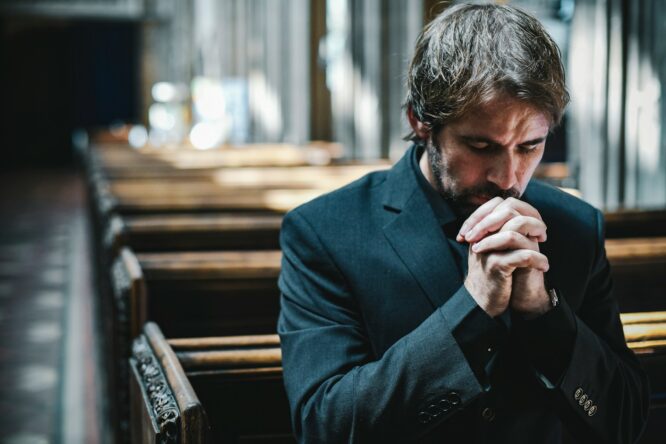
When you’re raised to believe your way is the right way, it’s easy to project that onto other people without realising. You might get frustrated when people don’t see things like you do or feel confused when someone’s values look different but still come from a good place.
The tricky part is, most people aren’t trying to offend you—they’re just living their truth the best way they know how. Letting people be different doesn’t mean you’re compromising your beliefs. It just means you’re choosing connection over control.
12. You might feel pressure to pretend everything’s fine.

In some faith settings, there’s this unspoken rule that you need to look like you’ve got it all together. Smile through the struggle, pray harder, and keep your mess behind closed doors. However, that pressure to always seem okay can become a heavy mask to wear.
The truth is, everyone’s messy. Everyone doubts, falls apart, and needs help sometimes. Real connection comes from being honest, not from performing perfection. You don’t have to hide what hurts to be worthy of love or respect.
13. You might mistake humility for self-erasure.
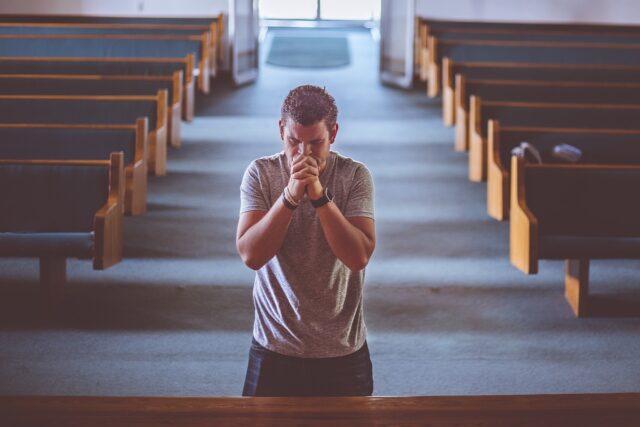 Source: Unsplash
Source: Unsplash There’s a difference between being humble and shrinking yourself. However, if you grew up being told not to ‘boast’ or draw attention to yourself, you might’ve learned to downplay your strengths or dismiss compliments. You might even feel uncomfortable taking up space at all.
True humility isn’t about disappearing. It’s about being grounded in who you are without needing to prove anything. You’re allowed to own your talents and still be humble. You’re allowed to feel proud without guilt attached to it.
14. You might stay in harmful dynamics because you were taught to ‘turn the other cheek.’
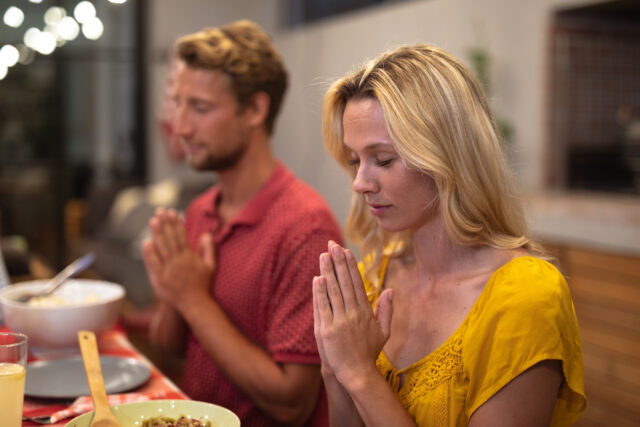
Being taught to forgive and show grace can be beautiful, but not when it’s used to justify staying in situations where you’re being hurt. Sometimes, teachings about kindness or patience get twisted into reasons to tolerate disrespect or even abuse.
You can believe in forgiveness and still walk away. You can have compassion without sacrificing your safety or peace. Setting boundaries isn’t unkind; it’s often the most honest and loving thing you can do for yourself and other people.
15. You might confuse comfort with truth.

Sometimes we hold onto beliefs just because they’re familiar, not because they still fit who we are. Letting go of certain ideas can feel scary, like you’re losing part of your identity or disappointing the people who raised you. But growth isn’t always comfortable.
Just because something feels safe doesn’t mean it’s true for you anymore, and that’s okay. Your values can evolve. You can love where you came from and still choose to grow beyond it. It’s not betrayal; it’s becoming more fully yourself.



